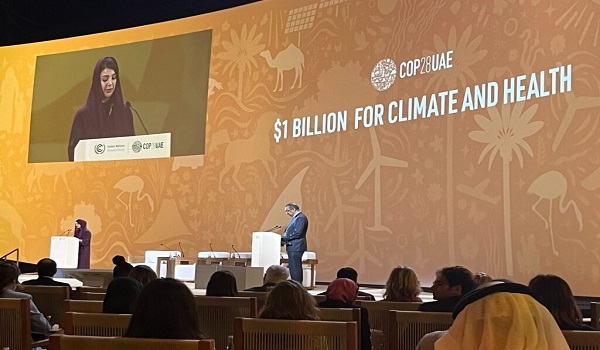On the second day of the United Nations climate summit in Dubai, more than 130 countries signed a landmark declaration pledging to accelerate efforts to transform agriculture and food systems. The agreement, announced during COP28, aims to scale up innovation and financing for soil health and other initiatives to combat climate change.
Among the signatories are 134 nations, representing some of the world’s largest food producers. These countries collectively account for 76% of food-based greenhouse gas emissions and produce 70% of the world’s food, as reported by the COP28 leadership.
Mariam bint Mohammed Almheiri, UAE Minister of Climate Change and Environment and COP28 Food Systems Lead, emphasized the critical role of addressing the interactions between food systems, agriculture, and climate in achieving the goals of the Paris Climate Agreement. Almheiri stated, “There is no path to achieving the goals of the Paris Climate Agreement and keeping 1.5°C within reach that does not urgently address the interactions between food systems, agriculture, and climate.”
As part of the declaration, the signatory countries committed to collaborating on scaling up adaptation and resilience efforts for farmers. Additionally, they pledged to take action to transform production practices by addressing soil health, food waste, and biodiversity loss. To achieve these goals, the nations agreed to accelerate innovation and increase financing for agriculture-based climate solutions.
Major food-producing and emitting nations, including the U.S., Brazil, and China, are among the pledging countries. However, India, notably absent from the list of signatories, had previously declared its refusal to agree to any agriculture climate actions that could compromise food security. Prime Minister Narendra Modi announced a voluntary green credit initiative as an alternative to carbon credits.
At COP28, discussions around food systems have gained prominence, with governments, private businesses, and non-profits committing substantial funds to lower agriculture-based emissions. The host country, the United Arab Emirates, announced a $2.5 billion investment to support food system innovation in partnership with the Bill and Melinda Gates Foundation.
Farm groups worldwide have advocated for ensuring that climate adaptation and mitigation plans do not negatively impact food security. The World Farmers’ Organisation stressed the need for governments to collaborate directly with farm stakeholders to drive meaningful change. In a statement, they emphasized, “The Declaration will only achieve its objectives if farmers are at the decision-making table,” inviting governments to work with farmers to co-design policies that empower them to contribute to farmer-driven climate and food security solutions.


